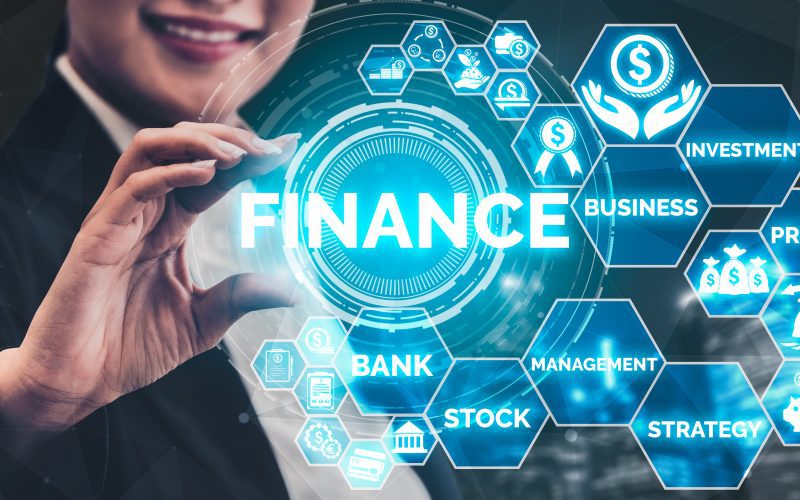Sustainable finance is gaining global attention as climate change and environmental degradation demand urgent and innovative solutions. This field combines financial practices that promote economic growth with environmental, social, and governance (ESG) principles. The emphasis on sustainable finance encourages responsible investments that support long-term societal and environmental goals, marking a significant shift from traditional finance. In this article, we’ll explore the future of sustainable finance, focusing on emerging innovations, key challenges, and the potential of sustainable finance to reshape global economic systems.
Understanding Sustainable Finance
What is Sustainable Finance?
Sustainable finance refers to financial services and products that take into account environmental, social, and governance (ESG) criteria. This includes investments in renewable energy, green bonds, and socially responsible businesses. Unlike conventional finance, which primarily aims to maximize profits, sustainable finance aims to create long-term value for society by supporting projects that address global challenges like climate change, social inequality, and resource scarcity.
The Role of ESG in Sustainable Finance
Environmental, social, and governance (ESG) factors are crucial to sustainable finance, providing a framework for evaluating a company’s commitment to sustainability. ESG criteria help investors make informed decisions by assessing a company’s environmental impact, commitment to social responsibilities, and ethical governance practices. These principles shape investment strategies and drive the movement toward a more sustainable global economy.
Key Innovations in Sustainable Finance

1. Green Bonds and Sustainability Bonds
Green bonds, issued by governments and corporations, are dedicated to financing environmentally friendly projects, such as renewable energy, pollution prevention, and sustainable agriculture. Sustainability bonds combine environmental and social goals, offering a flexible way for investors to fund projects that align with broader ESG goals. These bonds are becoming popular due to their ability to drive both profit and positive impact.
2. Socially Responsible Investing (SRI)
Socially responsible investing (SRI) combines financial returns with positive social impact. Investors choose companies that demonstrate ethical practices and align with causes they care about, such as human rights, fair trade, or labor practices. This approach not only diversifies portfolios but also ensures that investments contribute to a better society.
3. Impact Investing
Impact investing seeks measurable social and environmental impact alongside financial returns. It focuses on projects with a clear purpose, like affordable housing, sustainable agriculture, and healthcare improvements. By directly addressing societal needs, impact investing appeals to those who want to create positive change through their investment choices.
4. Fintech and Digital Solutions
Financial technology (fintech) is transforming sustainable finance by making sustainable investments more accessible. Through online platforms and mobile apps, fintech enables investors to easily participate in ESG-focused funds, green bonds, and SRI. Additionally, fintech solutions provide real-time data and analytics to assess the sustainability of investments, encouraging more transparent and efficient decision-making.
5. Carbon Trading Markets
Carbon trading allows businesses to trade emissions allowances to meet environmental targets. Companies that reduce emissions can sell their surplus allowances to those struggling to meet the same goals. As climate concerns grow, carbon trading markets are expected to expand, providing companies with incentives to minimize their environmental impact.
Challenges Facing Sustainable Finance
1. Lack of Standardization
One major challenge in sustainable finance is the lack of standardized criteria for assessing ESG factors. Various frameworks and rating systems exist, making it challenging for investors to compare sustainability metrics accurately. Without clear standards, “greenwashing”—where companies falsely claim sustainability—can mislead investors and damage trust in the market.
2. Data Accessibility and Reliability
Accurate data is essential for assessing a company’s ESG performance, yet many businesses lack transparent reporting on their environmental and social impacts. Data inconsistency across sectors and regions hampers the ability to make informed sustainable investment decisions. Reliable data standards and increased reporting are necessary to address this challenge.
3. Limited Government Support and Regulation
In many regions, governments have not yet established policies to promote sustainable finance or provide incentives for ESG-focused investments. Although some governments are developing green finance regulations, a lack of global policy coordination remains a barrier. Governments need to adopt policies that encourage responsible investments to make sustainable finance mainstream.
4. Greenwashing Concerns
Greenwashing, where companies exaggerate or fabricate their environmental achievements, is a significant concern. With growing consumer and investor interest in sustainability, some companies label themselves as “green” without substantiating their claims. This damages the credibility of sustainable finance and highlights the need for stricter verification standards.
5. Balancing Profitability with Sustainability Goals
For some investors, there is still a belief that sustainable investments yield lower returns compared to conventional ones. Although many sustainable finance products have shown profitability, the perception remains a hurdle. Aligning profitability with sustainability goals requires educating investors on the long-term value and resilience of sustainable investments.
The Role of Technology in Driving Sustainable Finance
Artificial Intelligence (AI) in ESG Analysis
Artificial intelligence (AI) is revolutionizing ESG analysis by processing vast amounts of data to identify sustainable companies. AI algorithms can analyze news, company reports, and other data sources to evaluate a company’s ESG performance, helping investors make informed decisions. This innovation enables more accurate and objective ESG assessments, enhancing the integrity of sustainable finance.
Blockchain for Transparency
Blockchain technology can improve transparency in sustainable finance by providing an immutable record of transactions and ownership. In green bonds, for example, blockchain can track funds from issuance to deployment, ensuring that they are used for their intended purpose. Blockchain’s transparency potential reduces the risk of greenwashing and builds trust among investors.
Big Data and Predictive Analytics
Big data and predictive analytics can improve investment decisions by identifying sustainability trends and forecasting risks. Predictive models can assess environmental, social, and governance risks in potential investments, helping investors avoid high-risk options while supporting projects with promising sustainability potential.
Comparative Table: Sustainable Finance Innovations
| Innovation | Description | Advantages | Challenges |
|---|---|---|---|
| Green Bonds | Bonds dedicated to financing environmentally friendly projects | Clear environmental impact, regulated markets | Limited issuance, greenwashing risk |
| Socially Responsible Investing (SRI) | Investment in companies with ethical practices | Supports social causes, ethical alignment | Limited industry options, returns may vary |
| Impact Investing | Investments with measurable social/environmental impact | Positive societal impact, high social value | Potentially lower returns, limited scalability |
| Fintech and Digital Platforms | Technology-driven investment solutions | Accessibility, transparency | Cybersecurity risks, data privacy concerns |
| Carbon Trading Markets | Market-based emissions trading | Incentivizes emission reduction | Limited availability, regulatory inconsistencies |
Analysis Table: Key Sustainable Finance Challenges
| Challenge | Description | Impact | Solutions |
|---|---|---|---|
| Lack of Standardization | Absence of uniform ESG metrics | Greenwashing risk, reduced trust | Develop standardized global ESG criteria |
| Data Accessibility | Inconsistent ESG reporting | Hinders accurate assessment | Encourage mandatory ESG disclosures |
| Limited Government Support | Few regulatory incentives | Slow growth of sustainable finance | Increase government incentives |
| Greenwashing | Misrepresentation of sustainability | Damages industry credibility | Stricter verification and auditing |
| Profitability Concerns | Belief that sustainable options are less profitable | Reduced investment interest | Educate investors on long-term benefits |
Future Prospects for Sustainable Finance
The future of sustainable finance holds promise as it integrates into mainstream financial practices. Global awareness of climate issues and social inequalities continues to drive demand for sustainable options. Financial institutions, governments, and investors are aligning toward shared goals, making it likely that sustainable finance will continue to grow. As technology advances, transparency and accountability will improve, making it easier for investors to make informed choices. Governments worldwide are also expected to develop regulations that support sustainable finance, providing incentives for ESG-aligned investments.
Conclusion
Sustainable finance represents a paradigm shift, aligning financial objectives with environmental and societal well-being. As it matures, sustainable finance faces challenges such as lack of standardization and greenwashing concerns, but innovation in areas like fintech and AI offers promising solutions. With collective efforts from the public and private sectors, sustainable finance can address pressing global issues, creating a more equitable and resilient world. As awareness and commitment grow, sustainable finance is poised to play a transformative role in shaping the future economy.











